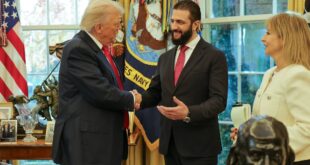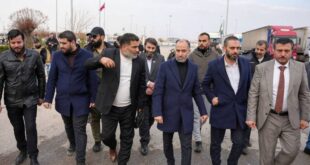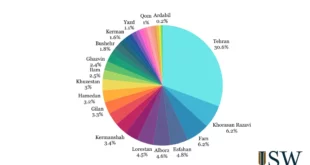BEIRUT — Lebanon has averted financial meltdown despite an acute political crisis. Initial pressure on its currency has eased. The tourist season may yet be salvaged. But analysts say full recovery will come only if reforms to rein in its ballooning $34 billion debt top the agenda after general elections starting in Beirut on Sunday.
“The political crisis resulting from the assassination of late prime minister Rafiq Hariri caused currency conversions… but also showed central bank resolve and considerable investor confidence in the financial sector,” Omar Razzaz, World Bank chief in Lebanon, told an economic forum this week. “Central bank credibility, investor confidence and international goodwill are important assets to build on. They are necessary but not sufficient long-term…Unless the economic fundamentals in Lebanon are corrected it will stay vulnerable.” The bomb which in February killed Hariri, who symbolised Lebanon’s drive to rebuild from the ruins of the 1975-1990 civil war, stunned the business community and shook the country’s financial markets.
Yet there has been no significant capital flight. Investors who initially converted from Lebanese pounds into the greenback, fearing a currency collapse, are switching back to take advantage of interest rates that have almost doubled to around 10 per cent on one-month pound deposits since the crisis.
The central bank drew heavily on its foreign currency reserves to defend the pound in the weeks after the killing, but kept it inside its 1,501-1,514 band to the dollar. The worst may be over, but analysts say emergency central bank steps are no substitute for spending cuts and public sector reform, long pushed by Hariri but mired in political bickering.
“Financial engineering alone is not enough and is no substitute for structural and administrative reforms that are necessary… to correct public finances and reduce public debt growth,” said Marwan Nsouli, central bank third vice-governor.
“These reforms alone can secure a turnaround in important economic indicators. We hope this will be the priority of… the government formed after the election of a new parliament.”
Economic renaissance?
Few analysts recommend Lebanon increase taxes, particularly as economic growth has already slumped since Hariri’s death, but say the country must cut spending, mainly by reforming a public sector bloated with political appointees.
Lebanon spends most of its income servicing the debt, among the world’s heaviest at 180 per cent of GDP, run up postwar.
Central Bank Governor Riad Salameh, who helped stabilise the volatile pound after the war, says Lebanon had cut interest from some 14 per cent in 1993 to around eight per cent last year.
But he warns that trend would be reversed unless the next government pushes through with reform, which fell by the wayside as Lebanon spent seven weeks without a Cabinet and now has an interim team focused on holding polls.
Almost half way through the year, Lebanon has no 2005 budget. It is operating on a draft prepared by Hariri’s Cabinet before it resigned last October, but rejected by his successors.
Kamel Abdullah, assistant general manager of Lebanon’s Kettaneh trading firm and lecturer at the American University of Beirut, said the vaccum has forced the central bank to act beyond its mandate to hold the economy together.
The country also faces several political challenges after elections that many shake the economy, he told the Financial Integration and Economic Resilience Forum.
It must decide the fates of the speaker and president and whether to yield to international pressure to disarm Hizbollah, all divisive issues.
International lenders, including the World Bank, say they are ready to assist Lebanon after Syria ended last month a 29-year presence critics say drained the economy.
But analysts agree Lebanon must find the political consensus to push ahead with reforms promised to international lenders who came up with some $4 billion in cheap loans at a 2002 summit in Paris that helped cut debt servicing and avert financial crisis. Likely to involve privatisation and unpopular public sector job cuts, reform has so far been stalled by political quarrels.
“The transition will be painful. It is a mistake to think it is all downhill from here, that there will be a huge rescue package and a road lined with flowers. Fiscal transition may mean a period of lower growth,” the World Bank’s Razzaz said.
“But if these elements can be put in place in three, six or nine months at most it will produce a positive shock after the negative shock of Hariri. Ultimately it is in the hands of the Lebanese to articulate that.”
 Eurasia Press & News
Eurasia Press & News


